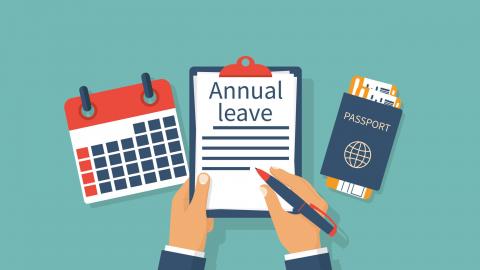Scheduled time-off (Planned Leave)
Scheduled time off (also known as Planned leave), refers to the hours absent from work as a result of leave organized and planned in advance in consultation with the employer, (such as long service or annual leave).This can also include non-regular planned leave, such as jury duty, maternity leave or days in lieu.
It is extremely important that organizations encourage their employees to schedule time off and have a break. This is because having a break will enable employees to feel refreshed, regain their strength to perform better in their roles.
Reasons for encouraging employees to have book time off
The following are the reasons why employers should encourage their staff members to have a break:
1. Increased employee retention: Encouraging employees to have a break, increases employee retention. According to research, employees that are happier, tend to perform better at their roles, and achieve targets; employees also tend to stay around for longer, which in turn reduces employee turnover.
2. Great teamwork: It is crucial that employers do not only rely on one person, therefore offering employees a time off will develop a boost in teamwork; it also helps to develop a positive working environment.
3. A better physical and mental health: A stressful working environment coupled with a lack of control, can be mentally draining for employees, therefore encouraging employees to schedule time off will help protect the physical and mental health of staff members. Each employee needs a time off to refresh their bodies and minds.





